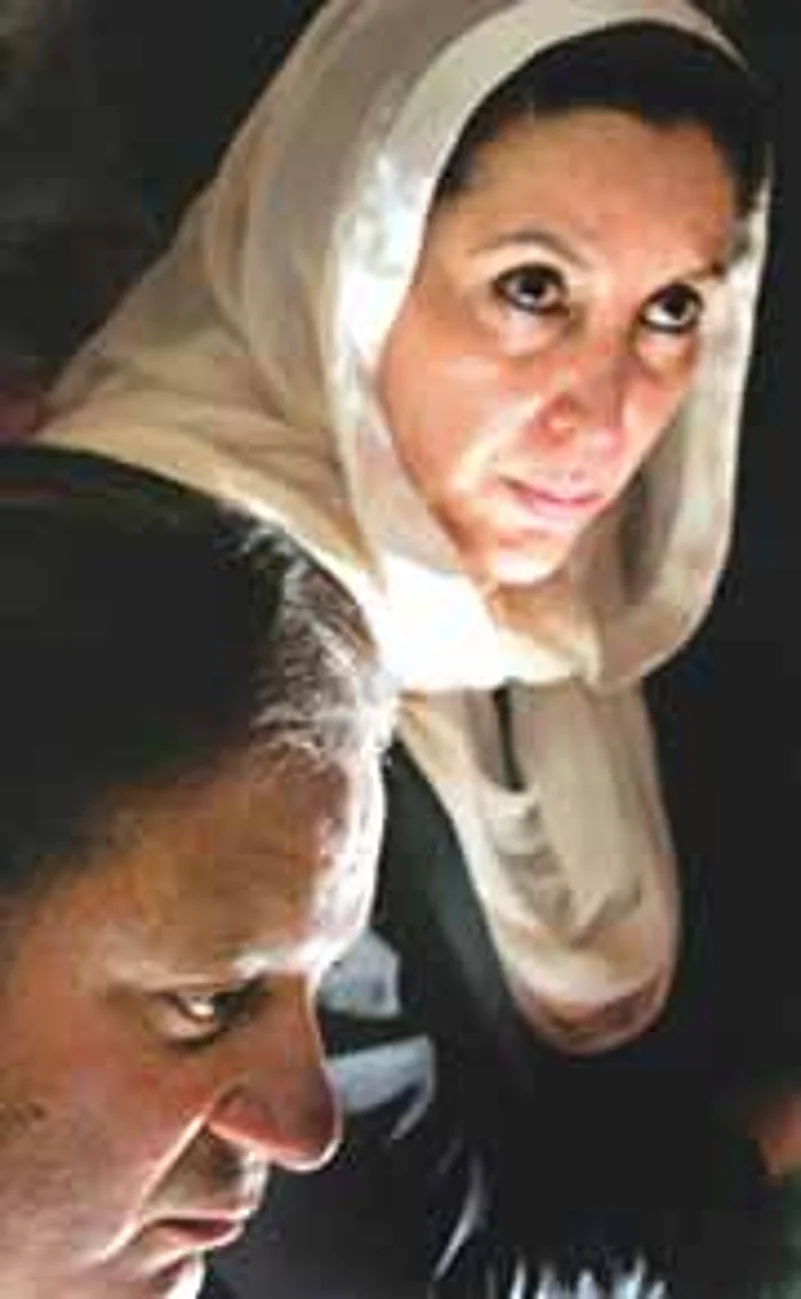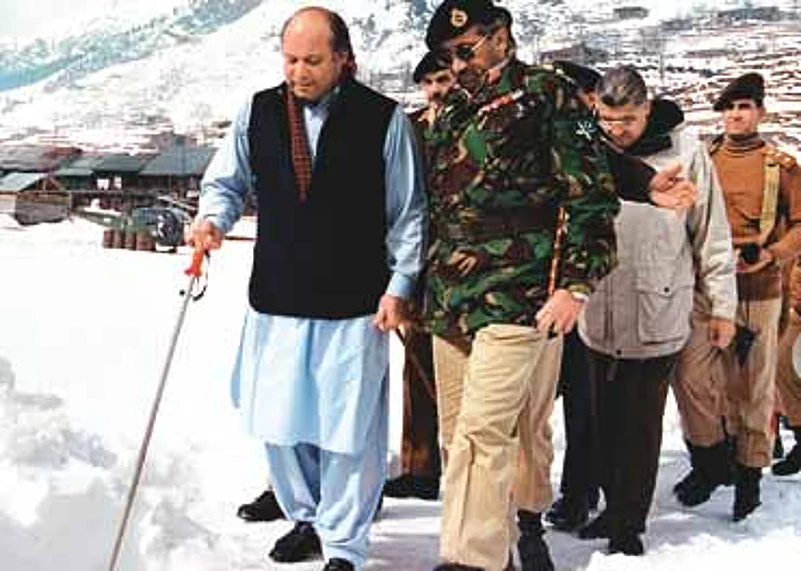

True, an unexpected storm could still roil the already turbulent waters of Pakistani politics. The Supreme Court, for instance, could disqualify Musharraf as president on the grounds that he contested the election without relinquishing the post of army chief. What happens then? Martial law? This remains a distinct possibility. No less than Justice Khalilur Rehman Ramday, while hearing the petition against Musharraf, remarked that it would be incorrect to say that the spectre of martial law has been "buried" as it still haunts everyone.
Benazir's concerns about terrorism are genuine. But her problem is that she is seen as the "civilian face of the American agenda". This perception has only been bolstered by her recent pronouncements that she would allow the IAEA to question the fallen nuclear patriarch, Dr A.Q. Khan, encourage NATO to stay in Afghanistan longer, and allow the US troops to assist the Pakistan army in taking the terrorists out in the tribal belts. Warns Maulana Fazlur Rehman, head of the Jamiat Ulema Islam (F), "Benazir is a part of the Bush team spearheading the agenda of the anti-Islam forces to suppress Muslims in the name of the so-called war on terror. She will have to accept new realities and our position in Pakistan." The maulana's outfit is a constituent of the Muttahida Majlis-e-Amal, an umbrella group of religious parties and a rising force here.
But then, Benazir doesn't necessarily have to adhere to the understanding she has reached with Musharraf. Swelling crowds could prompt her to script her act independent of him. Analysts already point to a telling indicator—she accused three officials close to Musharraf of conspiring to murder her. The Musharraf-Benazir relationship could also sour owing to plain, petty politics—the ruling Pakistan Muslim League (Q), the King's Party, will be eager to thwart a Musharraf-Benazir alliance. The PML-Q's very political future hinges on this—their strident criticism of Benazir is only eloquent proof of it. "After looting the country in the past together with Asif Zardari, Benazir now has her eyes on the fattened national exchequer," says PML-Q boss Chaudhry Shujaat Hussain. The open war of words prompted Musharraf to send his trusted lieutenant, Tariq Aziz, to meet and pacify the Chaudhry.
Worse for Benazir, her charismatic ability to draw crowds has been tested only in Karachi. Firstly, it's a moot point whether this can translate into votes, even in Sindh. And then, there's Punjab, Sharif's home base and Pakistan's biggest province, where she has yet to prove herself. Since it accounts for 148 seats in the 342-member National Assembly against Sindh's 61, a good performance in Punjab is essential for her to secure an overall majority.
With attempts afoot to have Sharif return to Pakistan before the election, Benazir may have her work cut out. Not only is Sharif's arrival likely to split the PML-Q, he is also expected to cobble an alliance with the MMA. These possibilities could arrest the PPP's growth, particularly as Sharif has enhanced his popularity through his steadfast opposition to Musharraf. Analysts feel Musharraf will find it hard to row the two boats of the PPP and PML-Q simultaneously, that the PPP is bound to drift further away from the establishment. For, only that will enable Benazir to notch an electoral performance proportionate to the crowds she drew on October 18.

















